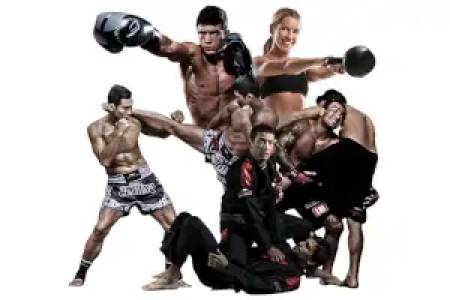A Korean Martial Art that is characterised by jumping and spinning kicks, high kicks and quick flurries of kicks. Taekwondo focuses on landing kicks and strikes above the waist only. It is a Martial Art that seeks to instil principles of morality, respect and the cultivation of an indomitable spirit within its practitioners.

Disclosure: Some of the links below are affiliate links and at no additional cost to you, I’ll earn a commission. Know that I only recommend products and services I’ve personally used and stand behind. When you use one of my affiliate links, the company compensates me, which helps me run this blog and keep my Martial Arts content free of charge for my readers (like you).
Brief History
Following World War II and the Japanese Occupation, Korean martial artists that were skilled in many Japanese and Chinese Martial Arts, established new Martial Arts schools called kwans. Each school had begun to practice and teach its own unique fighting style.
The South Korean president at the time had seen a Martial Arts demonstration by Choi Hong Hi. He identified it as Taekkyeon and requested that a single and unified fighting style be incorporated into the South Korean military. Choi Hong Hi had moved for his fighting style to be introduced and suggested the name Taekwondo. After some resistance from the other Martial Arts schools, Taekwondo was accepted and unified by the South Korean Ministry of Culture, Sports and Tourism.
The World Taekwondo (WT) federation was established to promote Taekwondo as a sport which was later included in the Olympic games.
Aspects
Taekwondo focuses on 4 main aspects:
- Sparring – improves timing and combat experience
- Forms or techniques (Poomsae) – a set of codified self-defence techniques which are executed in a series of movements
- Self-defence – utilising the Martial Art for survival or protection of others
- Break test – the practitioner attempts to break objects such as boards or tiles with a single strike from the hand or foot

The Martial Art in Practice
Taekwondo focuses on speed, agility and landing kicks and punches in quick succession against an opponent. The Martial Art employs expansive and powerful kicks delivered in a standing position and through the air. A large variety of kicking techniques are used to inflict damage on an opponent through different angles and power generation mechanisms:
- Front kick – a straight or linear kick executed from the front of the practitioner.
- Side kick - a straight or linear kick executed from the side of the practitioner.
- Roundhouse kick – a kick that targets the side of the opponent which is meant to reach around the opponent’s guard in a circular movement. The practitioner executes this kick from outside to inside from their point of view.
- Back kick – this kick is executed whilst turning away from the opponent and looking at the opponent over the shoulder. The practitioner makes use of the body like a coil and uses the body’s momentum to generate power in the kick. The heel is used as the weapon or point of impact.
- Reverse side kick – similar to the back kick, however the impact point is the side of the foot
- Hook or crescent kick – this kick moves in the opposite direction to a roundhouse kick. The practitioner executes this kick from inside to outside from their point of view
- Axe kick – the leg is extended from the inside has high up above the opponent as possible and then drawn down towards the opponent’s collar bone with maximum force.
- Spinning kick – involves full body rotation before the kick is executed. A large variety of kicks can be executed depending on the direction and leg used for the spinning kick
- Flying kick – jumping into the air in a forward direction and executing a straight kick in mid-air
- Jumping kicks – as with spinning kicks, a large range of kicks can be executed in mid-air depending on the direction of body rotation and the leg used.
Punches, throws, joint-locks, blocks are also used in self-defence applications.
Concepts
Taekwondo focuses on 5 tenets: courtesy, integrity, perseverance, self-control and an indomitable spirit.
Travel for Martial Arts
Is there any way we can improve upon the details of this martial art? Please Contact Us to let us know
More on Martial Arts

4 Strategies to Improve your Speed and Timing
Sunday, 28 August 2022 17:22An effective striker is one who has incredible distance management, speed, and timing. It is of little use to execute a perfect punch or kick if you are too far away from your opponent. To land your...

Martial Arts - A Definitive Guide
Friday, 08 October 2021 18:50Martial Arts are complex systems of combat which have been transferred from one generation of Martial Artists to another through codified curriculums of techniques, forms, drills, and exercises....

